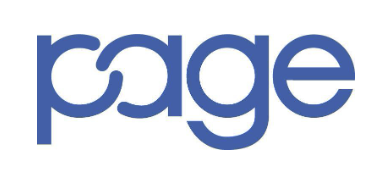
98 Percent of Business Leaders Agree Existing MBA Programs Lack Much-Needed Instruction on Corporate Communications and Reputation Management Strategy
NEW YORK (DECEMBER 7, 2011) — The Public Relations Society of America (PRSA) is leading an industry-wide charge on creating an MBA-level public relations course that will give future business leaders the strategic com-munication and reputation management skills they need to manage modern-day corporate challenges and crises.
Currently, many American business leaders view recent MBA graduates as being under-prepared in these areas, according to the findings of a new Kelton Research study, commissioned by PRSA and funded by MWW Group.
One reason why, says ITT Senior Communications Manager Anthony D'Angelo, APR, Fellow PRSA, is that MBA programs are “notoriously lacking" in their reputation and corporate communication curricula.
“If you ask business executives how important organizational and brand reputation are to their jobs, they're likely to answer 'extremely,'" said D'Angelo, co-chair of PRSA's MBA Initiative with retired Coca-Cola Communications Director Ray Crockett, APR, Fellow PRSA. “The difficulty is, if you ask them how much formal education — however basic — they've had in these disciplines, the answer usually falls between very little and a blank stare."
MWW Group President and CEO Michael W. Kempner adds that, “Public relations helps organizations and individuals tell their stories every day, but we've done a poor job of telling our own story when, in fact, public relations advances business practices that benefit the bottom line, investors and the overall economy."
To help address this lack of training, PRSA has created a turn-key program based on course curricula developed over three decades by Paul Argenti, professor of corporate communications at Dartmouth College's Tuck School of Business, ranked by The Economist as the world's best MBA program. Developed with the support of the Arthur W. Page Society, the course incorporates flexible full-semester, “mini-mester" and seminar formats, thus increasing the likelihood of adoption by the nation's MBA programs.
PRSA is in the process of identifying four charter schools, in addition to the Tuck School of Business, to take part in a pilot program, through which the schools will formally integrate the public relations course into their MBA programs for their fall 2012 semesters. PRSA set a timeline to launch the initiative with MBA programs nationwide in 2013.
Argenti says that now is the perfect time for MBA programs to place a greater emphasis on strategic communication and eputation management studies.
"It's exciting to think of Tuck's enduring and successful approach to corporate communication getting recognition and acceptance in the wider business school community," said Argenti. “We look forward to working with PRSA and its partners to help spread the message about the imperative for today's business leaders to understand reputation and corporate communication strategy and methodology."
The PRSA study, conducted in October, was intended to gauge the organizational value that U.S. business executives place on corporate communications and reputation management, and on senior managers having advanced skills in those areas. The responses received from 204 American business leaders (vice president and above) underscore the evolving reputational challenges businesses face.
According to the survey, a large majority of C-suite business executives believe that MBA programs lack sufficient emphasis on communications strategy and related leadership skills.
Moreover, 93 percent of survey respondents indicated that public relations is just as important to their companies as other forms of communication, including advertising and marketing. A further 9-in-10 business leaders surveyed admitted that executives at their companies need greater training in core communication disciplines, such as reputation management and corporate
communication.
Survey respondents also dismissed the view that only corporate public relations departments and agencies need advanced communications acumen. Nearly all business leaders surveyed think CEOs should understand the role of corporate reputation management (97 percent), and that it is important for C-level executives to have a working knowledge of basic public relations skills (98 percent).
Other key findings of the research include:
PRSA's MBA initiative is a multi-year, collaborative effort to advocate the value of including foundational communications strategy in MBA programs. Ultimately, the program is intended to give MBA candidates a better appreciation of public
relations' strategic value and help them understand the communications skills required for success in the future. The Council of Public Relations Firms and the International Association of Business Communicators both have expressed their support for the program.
PRSA is the largest professional organization serving the U.S. public relations community. With a mission to “advance the profession and the professional," PRSA provides news and information, thought leadership, continuing education and networking opportunities; sets standards of professional excellence and ethical conduct; and advocates for thebusiness value of public relations and greater diversity among public relations professionals. Based in New York, PRSA comprises 112 local Chapters; 14 Professional Interest Sections that focus on specific industries and practice areas; and the Public Relations Student Society of America (PRSSA), which is active at more than 320 colleges and universities.